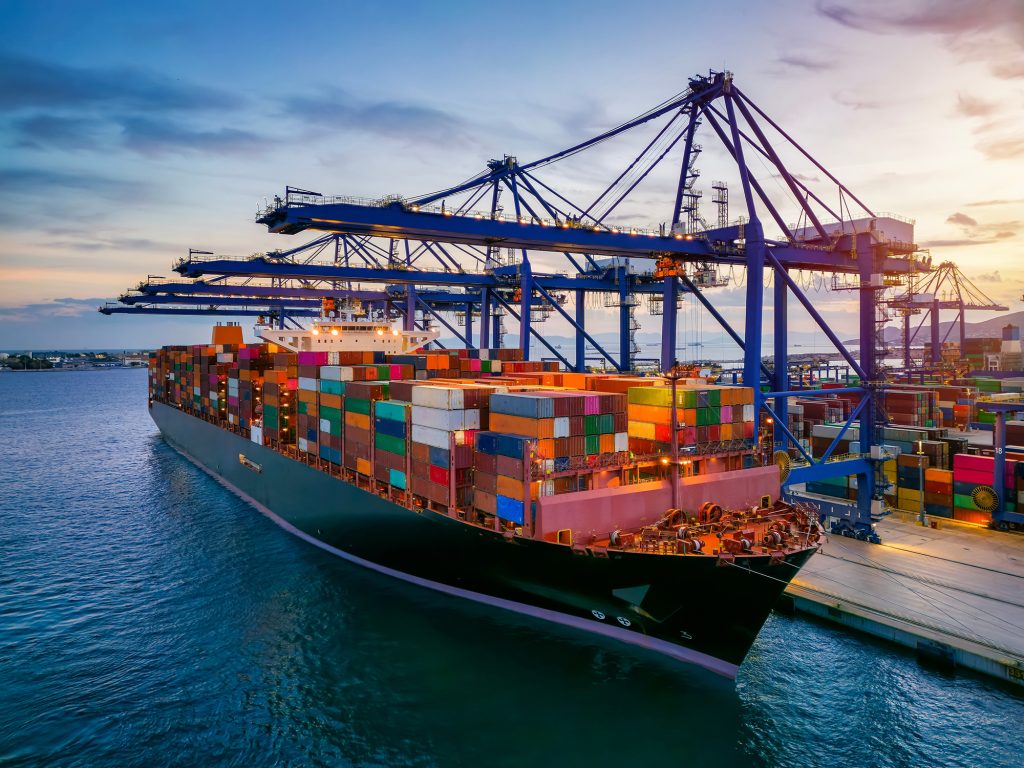
As we reported previously, June 2024 marked the one-year anniversary of the Unified Patent Court (UPC) coming into force. This was the biggest shake up in European patent landscape for nearly 50 years.
We have previously discussed various benefits and risks of the UPC (and its counterpart the Unitary Patent), such as centralised management and enforcement of granted European patent rights, and the cost-efficiencies offered by having a single patent right cover so many EU countries.
However, here we will discuss an interesting consequence of remaining opted-in to the UPC that could easily be overlooked. This aspect will be worth particular consideration by companies in the international maritime, logistics and transportation sectors, since it relates to the infringement exemptions available for commercial vessels or vehicles (e.g. ships or airplanes) moving between countries.
The traditional infringement exemption for visiting vessels or vehicles
Traditionally, patent law has included an important exemption to patent protection to facilitate global trade. Commercial vessels or vehicles from foreign countries that visit a different country only temporarily (e.g. to deliver cargo or passengers) cannot infringe patents in the country they are visiting. This avoids the need for a ship’s owner, for example, to be aware of the patents and patent laws in every country they visit, which would otherwise place an excessive burden on the people and companies tying our interconnected world together.
As such, foreign commercial vessels and vehicles are offered an important safe harbour protecting them from patent infringement lawsuits at the national courts of the countries to which they travel. Most countries around the world offer this exemption in some form, and in the past it has been critical for avoiding infringement; for example, in Aktiebolag v Irish Ferries, an Irish-registered ferry making frequent but temporary visits to UK waters was found not to infringe a UK patent thanks to the exemption.
In respect of individual countries, the foreign vessels and vehicles that are excluded from patent infringement at national courts are those vessels and vehicles that are foreign to each individual country. For example, if a French ship entered German waters temporarily or accidentally, it would not be found to infringe any German patent at the German national court. Similarly, if a German ship entered French waters temporarily or accidentally, it would not be found to infringe any French patent at the French national court.
Changes to this exemption under the UPC
However, since the establishment of the UPC, the meaning of “foreign” vessels and vehicles has become more complicated than when it was simply a matter for national courts.
Under the UPC, vessels and vehicles travelling between UPC Member States are not considered by the UPC to be “foreign”. As a result, a vessel or vehicle registered in one UPC Member State can infringe a European patent having effect in another UPC Member State, even if only visiting temporarily. Of course, for the UPC to have jurisdiction, a European patent must be opted-in to the UPC, irrespective of whether that European patent was validated as a unitary patent or via the traditional route of being validated in individual countries.
Therefore, revisiting the example above, if an infringement suit was brought before the UPC for a European patent that remained opted-in to the UPC, both the German ship entering French waters and the French ship entering German waters could be found by the UPC to infringe the European patent, assuming it is in force in both France and Germany.
It should be noted that vessels and vehicles registered in European countries outside the UPC, such as the UK or Spain, are still considered to be “foreign”, and thus can still benefit from the exemption if travelling to UPC Member States.
How this change may affect European marine, rail & road businesses
As a few examples, the UPC jurisdiction may affect a company operating windfarm support vessels servicing German offshore windfarms from a port in Denmark, European short-haul airliners whose planes frequently travel between European cities, or delivery companies whose lorries criss-cross national borders within Europe. In each of these instances, the difference in the exemptions highlighted above may provide a strong reason for patent proprietors to remain opted-in to the UPC to enforce their granted European Patent rights, rather than opt-out and rely on the national courts.
Even if your company is not looking to file any patents, if your vessels or vehicles are registered in a UPC Member State, you may still need to be mindful following the introduction of the UPC to ensure you are not infringing the European patent rights of third parties. Indeed, companies operating within multiple European countries, both inside and outside the UPC, may want to consider where their vessels or vehicles are registered in future, in order to continue to make use of the traditional infringement exemption.
Deciding the best approach to protecting your technology and how to minimise risk are just two important issues facing European businesses. If you would like advice on these questions or any other intellectual property matter, please contact the authors or another member of our team at gje@gje.com.


